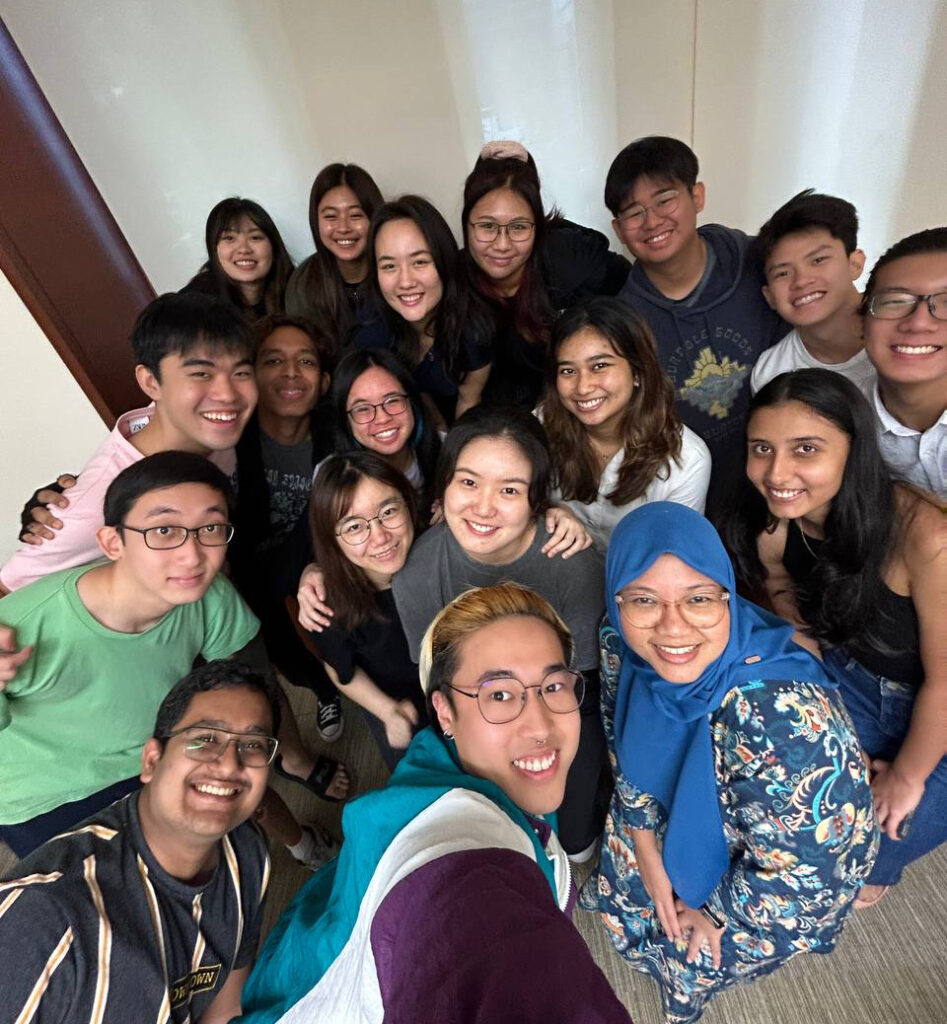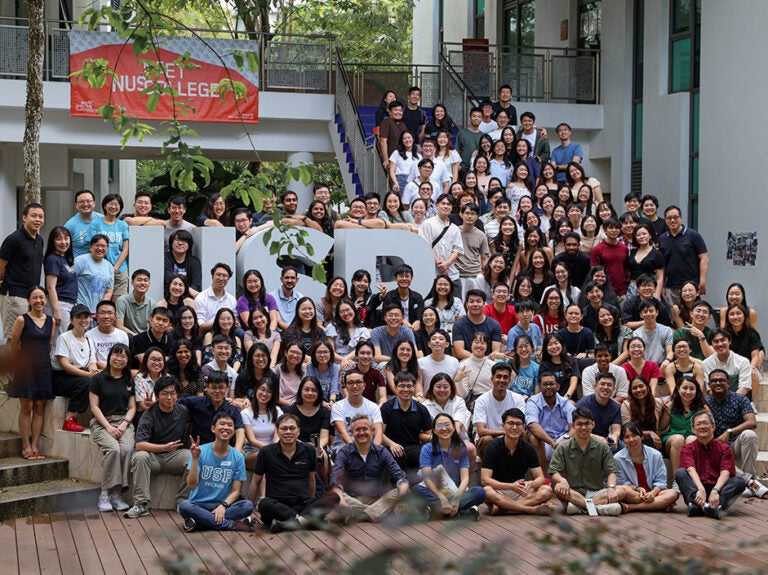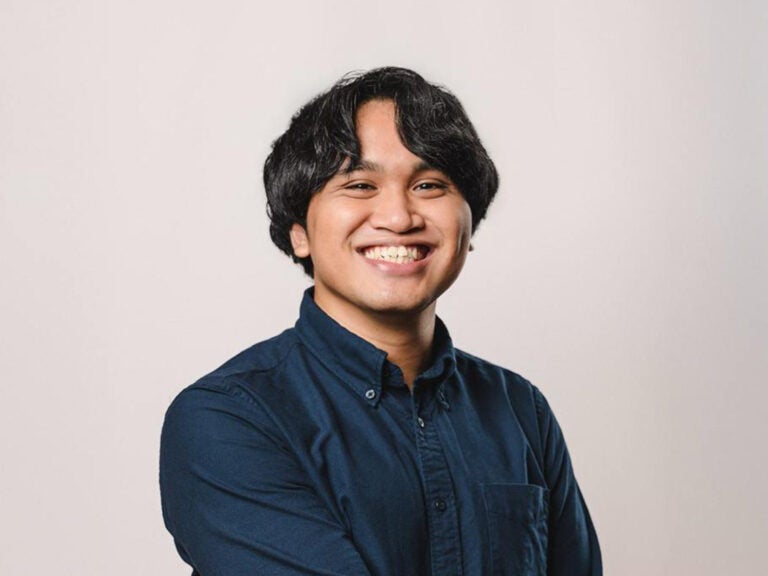One of the new faces to NUS College since last July, Nurhidayahti Binte Mohammad Miharja (fondly known as Dr Yahti) is a lecturer and sociologist specialising in the intersections of race, class, and nation-state building. After graduating with a Bachelor’s degree in Sociology from NUS, Dr Yahti pursued a Masters in Malay Studies at NUS, and later a PhD in Sociology at the University of Edinburgh, where she wrote her thesis titled “Relocating Malays: Housing Biographies, the State and Multiracial Nation-building in Singapore”. In this faculty feature, we sit down for a coffee chat with Dr Yahti to learn more about her academic journey, her IEx (Impact Experience Project) topic, and her experiences in NUS College so far.
By Chloe Yung ‘23

Hi Dr Yahti, can you tell us about yourself and about what you’re working on now?
I’m a lecturer at NUS College and the College of Humanities and Social Sciences, teaching two modules this semester, Understanding the Social World (USW) and Asian Interconnections. Both are personal favourites of mine, because they allow me to introduce sociology to students when thinking about the everyday world – to see the general in the specific! I’m also supervising IEx teams on Self-help + Communities.
I’m currently working on publishing my PhD thesis, which is about understanding Singapore’s housing policies over the past 57 years through the biographies of its minority Malay residents.
Outside of university, I’m involved in a non-profit organisation called My Community, which conducts guided tours all across Singapore. I’m interested in historical narratives, and I like that they aim to lift history out of the texts ‘through the common man story’ by asking questions such as, ‘How have people in this neighbourhood lived in different eras? How do lives evolve as the landscape changes?’
How has your experience been in NUS College so far?
I like the strong sense of community among my colleagues and students at NUS College, something I didn’t experience in my undergrad life. For example, when I came to the first USW class this semester, I realised that everyone knows each other — except me. [Laughs] My colleagues are also collegial and supportive, and there is an openness to learn from one another. After my USW classes, I try to have lunch with my students and we continue our discussions. Opportunities for small group discussions are plenty at NUSC, which is great!
What do you enjoy the most about teaching USW?
The module allows us to discuss openly on a range of topics and subjects that are contemporary, relevant, and hopefully meaningful to the class.
Last week, my USW class talked about the construction of history in Singapore, namely, what is the Singapore story about? Is our story inclusive, objective, or does it function to prevent historical amnesia? I was invested in the discussion, because my MA thesis looked at the portrayal of Malays in Singapore history textbooks. Students sometimes say that history is meaningless to them. But when asked why, they find it meaningless because they feel that they’re not written into history. Such lack of inclusivity in our narratives can be seen as a kind of historical absence.
What are you most excited about being a lecturer at NUS College?
Working with my IEx teams! I’m interested in partnerships with other community-based organisations. IEx is unlike other teaching modules, with its ground-up emphasis toward understanding the communities’ sentiments and issues, which is very much aligned with my training.
What is your IEx topic (Self-help + Communities) about?
Initially, I was interested in looking at how our socio-economic problems continue to be racialised, where self-help groups along the lines of race were created by the state in the 1980s such as Mendaki, Chinese Development Assistance Council, Singapore Indian Development Association, Eurasian Association, and Association of Muslim Professionals. Each community is therefore responsible in solving their own social problems. Now, I’ve broadened the focus to all formal and informal self-help (community) groups, essentially any group that comes together to perform community initiatives addressing specific social issues. I also want to start with the basics: What does self-help mean in Singapore, and perhaps, how does it compare to the region? What are some forms of self-help related to social mobility, apart from Singapore’s racially defined self-help groups?
I’m really keen on supervising this topic. I’ve been talking to a number of teams, and I realize that not many are aware of what self-help entails, and a certain stigma is attached to ‘self-help’. It is perceived as an intangible IEx topic and might have something to do with the students’ sense of issues.
You’ve mentioned the importance of having a ‘sense of issues’. What does that mean to you?
A consciousness of issues inflicting or affecting certain communities. The first two questions I ask teams who approach me is what is a particular community they’re interested in, and what is an issue that they would like to address. I think if you’re not on the ground, talking to people, it’s kind of hard to have a sense of issues.
What inspired you to pursue a Masters in Malay Studies, and then a PhD in Sociology?
While I’ve always been interested in social inequalities, social mobility is my thing. [Laughs] I was trained in sociology during my undergraduate days at NUS, and so I wanted to move to understanding social issues through a multidisciplinary lens. The Malay Studies department, which focuses on the development of the community not just in Singapore but in the region, encompasses the study of their culture, values, and institutions in the process of adaptation to the demands of change; this I felt suited to expand my research interests. All in all, my training has honed my sense of issues.
Do you have any advice for students who wish to broaden their understanding of social inequalities outside of the classroom?
I’m big on lived experiences, because theory can only tell you so much, right? When you talk to people, you begin to see the importance of trying to understand their subjective experiences. It might be different from the dominant narratives out there. These conversations can offer you an understanding of the kind of structural impediments to social mobility that they encounter. You get to have a more nuanced perspective on not just social inequalities, but also social mobility. Which leads to the next important thing, what then can be done?
Could you tell us more about your PhD thesis that you did in the University of Edinburgh?
Singapore has always been touted as being progressive in terms of its social housing policy. Over 80% of its residents live in good public housing, of which 90% own homes. The government believes it has to enable all Singaporeans to own a home: ‘a home for everyone’, yet certain groups of people may have problems with home ownership. And I noticed how a sustained housing hierarchy remains, and crucially overlaps with Singapore’s socio-ethnic stratification. So, I wanted to explore housing policies directly through the experiences of Malay residents. And I chart the spectrum of experiences of those who lived the sharp end of Singapore’s housing policies methodologically through ‘housing biographies.’ While housing history comes from the nation-state, housing biographies is a step towards understanding the housing lives of residents.
In other words, housing biographies breathe ‘life’, colour, and nuance to Singapore’s housing history. It is a biography that is tied to the home, neighbourhood, and offers us a glimpse into how housing policies (differently) impact lives. And so, these biographies complicate Singapore’s housing history by introducing parts of it that have never been articulated before. As such, retrieving some of these stories contributes to a fuller understanding and awareness of some of the costs exacted in building Singapore as a world-class housing nation.
Lastly, what is something you wish all undergraduates knew about your topic of study?
Characteristic of my IEx, I think it’s important to understand how inequalities are lived and embodied by trying to interpret the ways in which inequalities are subjectively experienced and understood. For instance, what does it feel like to be a social problem? What does the day-to-day living within a certain ‘social class’ actually feel like? Exploring the specificities of agency and subjectivity, and seeing the macro processes at work — it allows us to see the effect of policies on different individuals. Fieldwork is great, but it’s only part of the process. Students need to be prepared: we need to be able to listen to what people are saying without being prejudiced, debunk culturalist assumptions without presupposing things, and of course, come with a certain degree of preparation based on a technical corpus of literature. And this entails exposure to certain policies, the role of ideology, and all the basic social science tools, i.e., concepts that will make them more critical and of course, in this process of developing a sense of empathy and understanding.
At the end of the day, students need to think about these social issues while practicing self-reflexivity. I see fieldwork as a starting point in trying to develop awareness that the phenomena they’re studying is complex. This needs to be complemented by exposure to critical literature or scholarship to say issues of inequality with respect to housing or other social problems.
*The interview above was edited for length and clarity.


